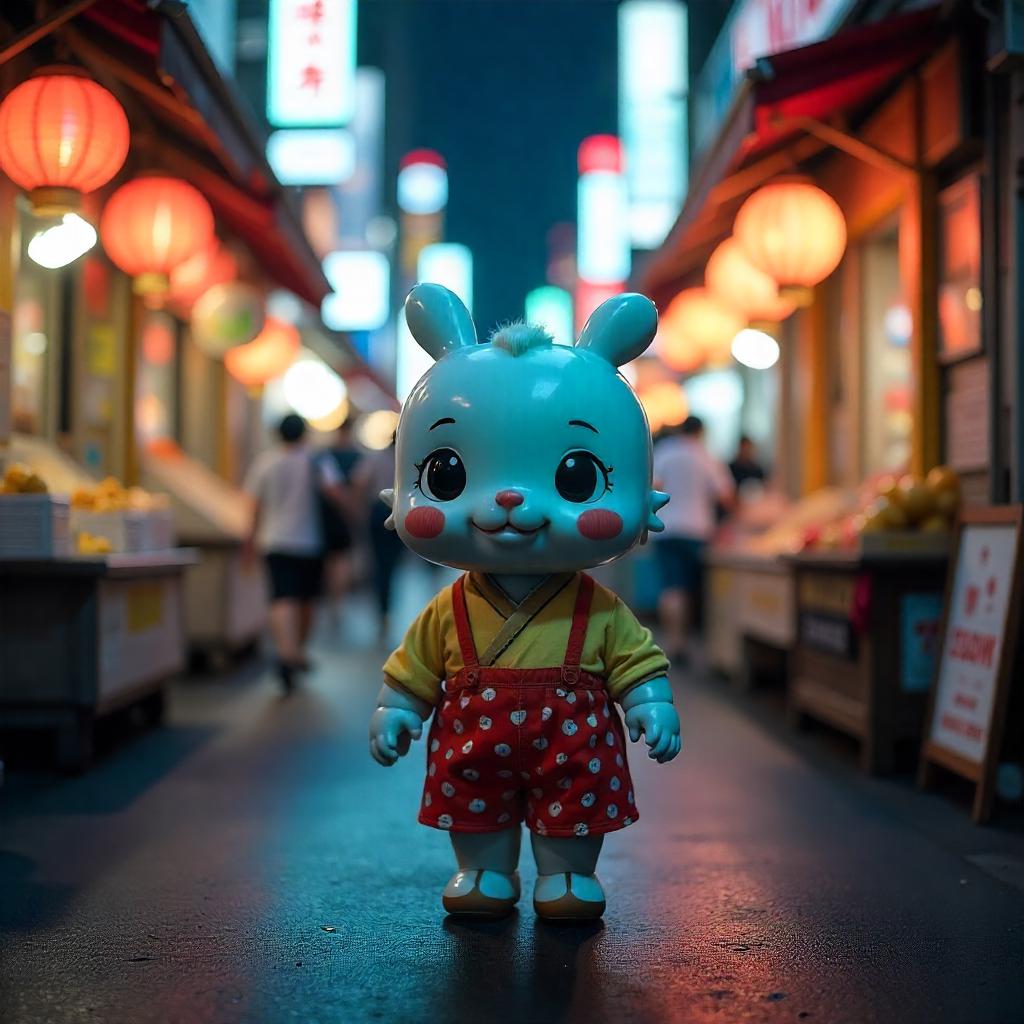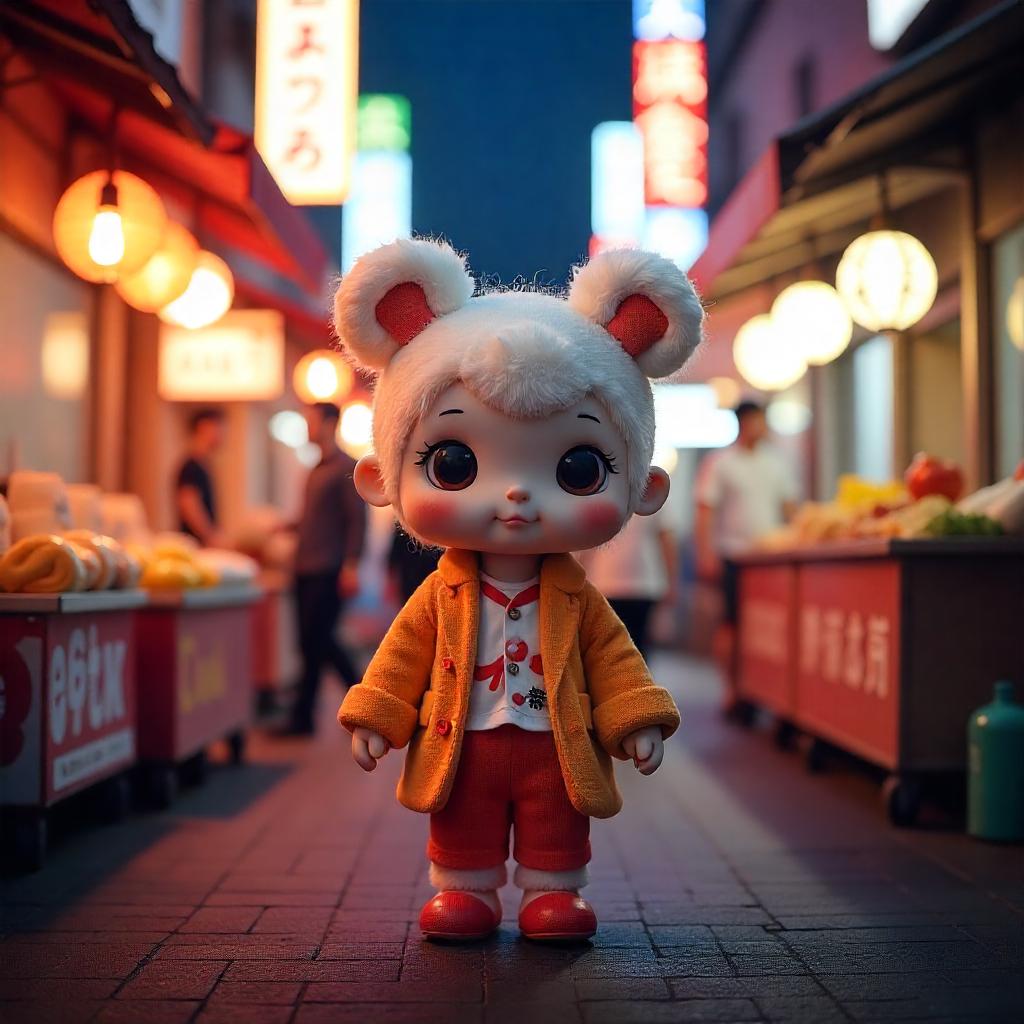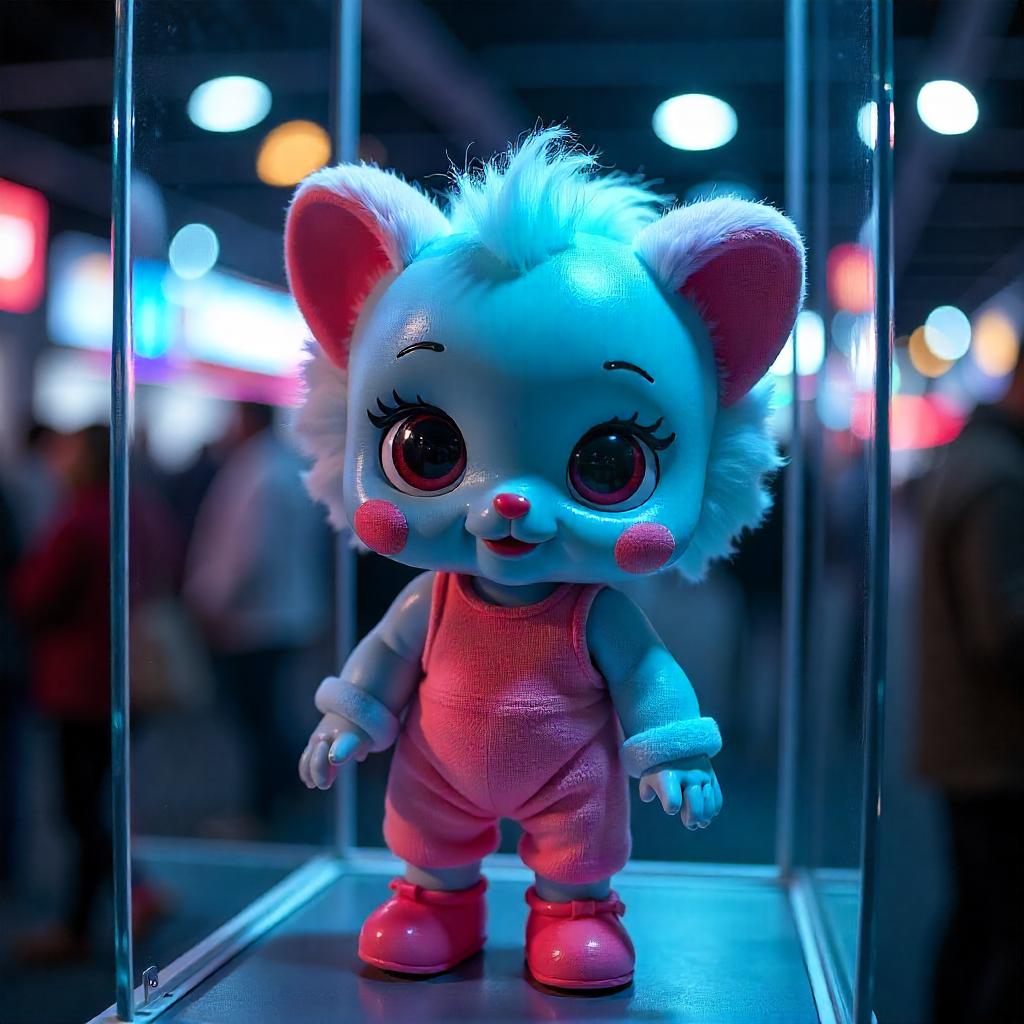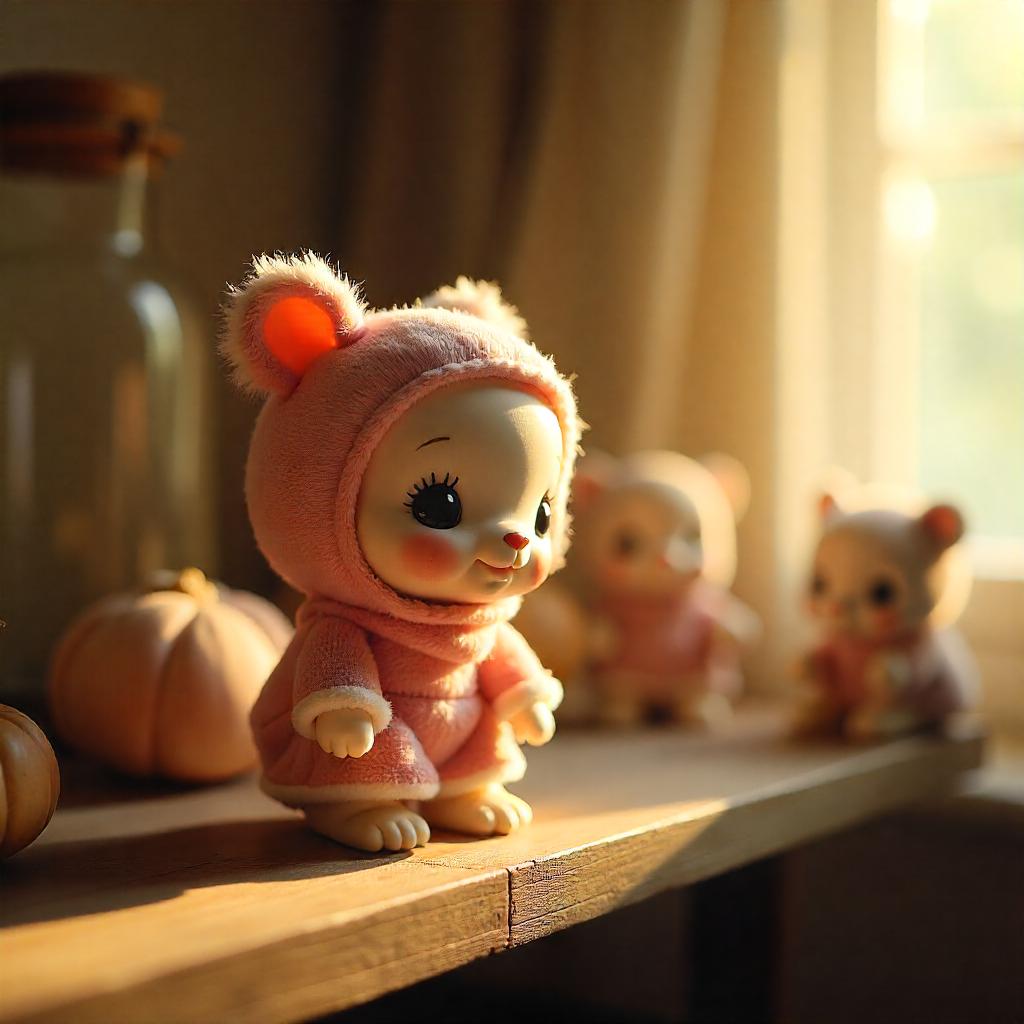The Labubu doll craze—from its viral marketing mechanics and blind‑box strategy to its broader cultural impact, the emerging controversy (including conspiracy & resale frenzy), and an Islamic‑fiqh perspective on this trend.

1. 🎯 What Is the Labubu Doll Phenomenon?
Origins & Creator
Labubu is a quirky, “ugly‑cute” monster‑elf character with bunny‑like ears and a jagged nine‑tooth grin, created by Hong Kong–Belgian artist Kasing Lung for his “The Monsters” picture‑book series in 2015. Initially produced by How2Work, the character gained mass appeal after Pop Mart picked it up in 2019 (musliminsiders.com).
Explosive Popularity in 2024–25
Some rare editions fetched staggering prices—over USD 150 k, including a life‑size mint‑green figure auctioned for about USD 170 k .
2. Viral Marketing Labubu: Celebs, Social Media & Community
Celebrity Endorsements
The involvement of high-profile celebrities wearing Labubu as bag charms amplified its fashionable status ﹣ a key trigger.
Social Media Unboxing Culture
This community-sharing amplified FOMO, stirring repeated purchases.
Fan Engagement & DIY Culture
Psychologists suggest this creates emotional comfort, creativity, and community bonding .
3. The Blind‑Box Model: Psychology of Rarity & Repeat Purchases Labubu
Labubu utilizes Pop Mart’s signature “blind‑box” model: buyers purchase a sealed container without knowing which variant it contains. This taps into:
- FOMO and scarcity driving urgency (Reddit).
- Variable ratio reinforcement (like slot machines), which encourages addictive repeat behavior (PMC).
- Community‑driven syndicate behaviors, where fans compare “chaser” haul lists to complete their collection.

This strategy isn’t new—Pop Mart pioneered it since 2016—but Labubu scaled it globally through smart tuplets of design, IP, and hype .
4. Economic Ripple Effects: Resale Frenzy & Market Behavior
Resale Market & Collateral Effects
With limited supply, secondary markets exploded. People pay hundreds—even thousands—for rare figures. Some eBay listings went up to USD 7,000; StockX saw premium editions fetch over USD 3,000 .
Arguments on Reddit expose frustration and ethics around artificial scarcity and resellers hoarding stock to inflate prices (Reddit).
Investor Insight
Economists liken the craze to speculative financial behavior—mirroring trends in crypto, options, and leveraged ETFs.
Regulatory Concern
China and other governments expressed concern over the blind‑box model’s addictive potential. Authorities in Russia, Iraq–Kurdistan even banned or scrutinized Labubu, citing harm to children and links to behavioral issues or alleged demonic associations (musliminsiders.com).
5. The “Demon Doll” Myth & Cultural Backlash
Some conspiracy theory went viral around Labubu being linked to the demon Pazuzu—due to its eerie grin and ears—sparking panic and even doll destruction. Experts and Pop Mart debunked these claims; it’s a fictional character rooted in European fairy lore . Ironically, these rumors only increased its “cute-horror” appeal .
6. Cultural & Social Dimensions Labubu
Adult-Child Play & Fashion Fusion
taps into the “kidult” movement—playing on nostalgia, but with adult spending power.
Cultural Bridge
Origins in Hong Kong/Bandung traditions, raised in the West—Labubu exemplifies China’s rising role as a creator, not just a manufacturer.
DIY Innovation
Fans invest in building environments—tiny furniture, stands, vehicles—unifying play and artistic expression .
7. Islamic Perspective on Blind Boxes, Gharar & Maisir Labubu
Gharar (Excessive Uncertainty)
Blind boxes, by their nature, create excessive uncertainty (gharar), prohibited in transactions according to Islamic law (Reddit).
Maisir (Gambling)
Scholars widely agree it’s impermissible if money is exchanged for uncertain returns (Reddit).
Blind Box Suicide/Addiction Risk
Summary Islamic Verdict
- Toy possession: permissible for children.
- Blind‑box purchases involving money & luck: haram due to gharar + gambling.
- Adult blind box addiction is especially problematic—they violate transparency and can cause harm.

8. Balanced Insights & Best Practices Labubu
For Collectors & Fans
- Celebrate the art, design, and community—but exercise moderation.
- Set budgets, avoid repeated impulsive spending, beware resellers exploiting FOMO.
- Engage in DIY and display but avoid over-investing your emotional or financial well-being.
For Parents
- Labubu keychains or plushies are fine as toys if not abused.
- Don’t equate them with unregulated lottery or gambling activities.
For Market Labubu Regulators & Pop Mart
- Greater transparency in odds and stock supply could help curb addiction-like patterns.
- Considering age limits, warning labels, or purchase caps align with calls from regulators.
9. Final Reflections of Labubu
- Original design & emotional resonance (“scary‑cute”)
- Scarcity + randomness (blind boxes)
- Social amplification via celeb & social media culture
- Community & creative engagement
- High-stakes secondary market & psychological dynamics
For Muslims, while owning a single Labubu for aesthetic or sentimental reasons is permissible, blind‑box purchases—especially grown-up single‑use buying for chase, gambling, or profit—are Islamically impermissible due to the elements of gharaar and maisir.
Finally, regulation—whether self-imposed or legislated—may be essential. Individuals may stick to enjoying the art, culture, and creativity of Labubu—but do so consciously, safely, and within ethical boundaries.
In summary: Labubu is a compelling blend of whimsical design and viral culture, yet it also offers a cautionary tale about unchecked hype, addictive purchase models, and the importance of aligning consumer behavior with both reason and ethics—especially through the lens of Islamic values.
Let me know if you’d like visuals, personal stories from Pakistan’s community, or tips for subtle collecting!
Here’s a deep dive into the Labubu doll, the demon/Pazuzu rumor, the “Simpsons prediction” conspiracy—and an Islamic perspective on all this.
🧸 1. What is Labubu—and is it demonic?
- Its aesthetics draw from Northern-European fairy lore, not demons (mythdetector.com).
- haunted children (Know Your Meme).
- Experts, creators, and Pop Mart all confirm Labubu is a fantasy character inspired by folklore, not demons .
🎭 2. The Simpsons “prediction” myth
- In reality:
- The episode did show a Pazuzu statue, but it’s in the context of parodying The Exorcist, not forecasting real life (Viral Strange).
- The Pazuzu on The Simpsons doesn’t resemble Labubu.
- The viral video conflated unrelated content to create a sensational “prediction” meme (Viral Strange).
🕵️♂️ 3. Origins of the panic: Curses, conspiracies, and PR
- Internet rumors escalated: some alleged Labubu was part of voodoo rituals harvested to enchant children. One Orthodox exorcist even joined the narrative (mythdetector.com).
- In fact, the “cursed” claims were satirical or meme-based—and the so-called evidence is anecdotal and unsupported (Labubu Blog).

🙃 4. Why conspiracies stick—and why they fail
- The “cute-horror” aesthetic paired with unpredictable blind-box releases creates fertile ground for eerie interpretations (mythdetector.com).
- This follows a classic pattern:
- Mysterious toy → ominous visuals → supernatural stories.
- Social media inflates hysteria via sensational sharing.
- Meanwhile, Gen Z and meme culture quickly spun the rumours into satire—posting memes of “blessing your Labubu” at church or reviews mocking the panic (Know Your Meme, Reddit, Indiatimes).
🕊️ 5. Islamic Analysis: Is Labubu haram?
Let’s break it down:
Permissibility of toys
- Islam permits toys for children; the Prophet ﷺ let Aisha play with dolls .
Concerns over pagan symbolism
- Labubu is inspired by folklore—not religious or demonology. There is no evidence of pagan/demonic intent, so there’s no Islamic prohibition on them (Know Your Meme).
No supernatural claims
- Theories of curses or fortune-telling are unsubstantiated. Islam warns against believing in supernatural illusions. Since the claims about voices, curses, or Pazuzu ties have zero proof, they are dismissed as baseless fears.
The ‘Simpsons prediction’ fallacy
- It’s mere superstition—not a religious decree. The show didn’t actually predict real-world events. Again, these are unsupported chains of “evidence.”
Verdict: It is fully permissible to own Labubu dolls as collectibles or toys. There is no Islamic cause for concern unless you deliberately engage in superstitious fears or attribute demonic powers without evidence.
✅ 6. Summary & Takeaways
| Topic | Reality |
|---|---|
| Labubu character | Folklore-inspired collectible, by Kasing Lung & Pop Mart |
| Pazuzu “possession” claims | Viral conspiracy—no factual basis |
| Simpsons “prediction” theory | Misleading meme blending separate content |
| Islamic ruling | Permissible as toy/collectible; fears are unfounded |
Final Thoughts
- Islam encourages rational analysis: there is no trace of paganism, curses, or demonic influence in Labubu.
- If any spiritual discomfort arises, it’s powered by unverified rumors, not actual content or intent behind the doll.
So, feel free to enjoy the quirky design, the collector’s thrill, or the blind‑box excitement—all with peace of mind. And if anyone brings up demon rumors, you can confidently explain what’s really going on!
